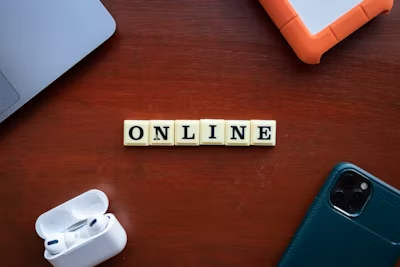BUSINESS
Managing Your Digital Assets: Brave Wallet vs. MetaMask

In the expansive universe of cryptocurrencies and blockchain technology, managing digital assets is critical for newcomers and seasoned enthusiasts. Two popular tools you might consider for this purpose are Brave Wallet and MetaMask. Both serve as gateways to interact with decentralized applications (dApps) and manage a variety of tokens. However, choosing the right one can be a decisive factor in your experience and security when engaging with digital assets.
Brave Wallet and MetaMask offer distinct advantages for managing digital assets. Brave Wallet, integrated into the privacy-centric Brave browser, prioritizes simplicity and security by eliminating the need for additional extensions. In contrast, MetaMask, a widely used standalone extension compatible with various browsers, provides flexibility and a familiar interface, appealing to a large user base. Understanding the unique features, security measures, and user-friendliness of each option is essential for effectively managing digital assets, whether you’re actively trading, engaging in dApps, or simply holding tokens.
Exploring Brave Wallet
As you navigate the ever-evolving world of cryptocurrencies, understanding the tools at your disposal is essential. Brave Wallet is a unique offering that merits your attention, with seamless browser integration, robust security features, and an intuitive user interface.
Browser Integration
Brave Wallet is seamlessly integrated into the Brave browser, meaning there’s no need for extensions. This built-in approach enhances performance and reduces the risk of third-party vulnerabilities. By using Brave Wallet, you can manage your cryptocurrencies and interact with decentralized applications (dApps) directly within the browser interface.
Security Features
Security with Brave Wallet is taken seriously. It is built on a foundation of client-side encryption, which means that your keys are encrypted on your device and not on a remote server. This gives you full control over your digital assets. Additionally, Brave Wallet supports hardware wallets like Ledger and Trezor to provide an extra layer of security.
User Interface
Brave Wallet’s user interface prioritizes simplicity and ease of use. You can view your portfolio at a glance, with clear transaction histories and organized asset management features. The UI is clean, and the experience is tailored to assist you in managing your digital assets without feeling overwhelmed.
Understanding MetaMask
MetaMask has established itself as a popular gateway to the decentralized web. It facilitates a user-friendly experience for managing Ethereum-based tokens and interacting with decentralized applications.
Extension Benefits
MetaMask serves as a bridge that connects your browser to the Ethereum blockchain. The convenience of having a wallet integrated into your web browser allows you to conduct transactions and interact with dApps without the need for dedicated software. Its key features include:
- Ease of Use: The setup process is simple, guiding you through creating and backing up your wallet.
- Security: Your private keys are stored locally on your device and encrypted, providing a layer of security against online threats.
Token Compatibility
MetaMask excels in its support for ERC-20 and ERC-721 tokens, which are the standards for fungible and non-fungible tokens (NFTs), respectively, on the Ethereum network. Support details:
- ERC-20 Tokens: You can easily add, send, and receive any token built on this standard.
- ERC-721/NFTs: View and manage your collection of NFTs directly within the wallet interface.
Community Support
One of MetaMask’s strengths is its robust community and development support. Here are a few highlights:
- Active Development: Continual updates and a transparent roadmap keep the platform evolving.
- Community Resources: A wealth of tutorials, user guides, and active forums ensures you’ll always have help.
- Open Source: A global network of contributors is constantly working to improve the software.
Comparing Features and Usability
When choosing between Brave Wallet and MetaMask, consider their differences in cross-chain functionality, ease of use, and costs to find which aligns with your digital asset management needs.
Cross-Chain Functionality
Brave Wallet supports native integration with multiple chains, allowing for seamless transactions across different networks without the need for additional extensions. In contrast, MetaMask requires custom RPCs for cross-chain operations, which can be a bit more technical but is still widely used for its Ethereum-centric services.
- Brave Wallet: Integrated with multiple blockchains
- MetaMask: Custom setup for each blockchain needed
Ease of Use
Usability is key in any digital wallet. MetaMask is known for its user-friendly interface and is often recommended for beginners. Brave Wallet also prioritizes a streamlined experience, with the added benefit of being built into the Brave browser for easy web3 access.
- Brave Wallet:
- Built into the Brave browser
- Streamlined user interface
- MetaMask:
- Standalone browser extension
- Intuitive for new users
Cost Analysis
When it comes to costs, both wallets themselves are free to install and use. However, transaction fees depend on the network you’re using. Brave Wallet may offer some savings as it eliminates intermediary extensions, while MetaMask provides detailed gas fee customization options to help you manage costs.
- Brave Wallet: Possible cost savings by cutting out extensions
- MetaMask: Customizable gas fees for transaction cost management
Assessing the features and usability of Brave Wallet vs. MetaMask can greatly influence your experience with managing your digital assets. The difference of Brave Wallet and MetaMask lies in their approach to integration and flexibility. Choose a wallet that not only meets your current needs but also aligns with your future goals in the evolving world of cryptocurrencies.
Selecting the Right Wallet for Your Needs
When it comes to managing your digital assets, choosing between Brave Wallet and MetaMask can be crucial. Your decision should align with your daily usage patterns, security concerns, and preferred user experience.
Brave Wallet:
- Integrated Experience: As part of the Brave browser, it provides a seamless experience with no additional extensions required.
- Security: Built directly into the browser, minimizing potential security risks from third-party extensions.
- Usability: Offers a more straightforward interface for those who appreciate simplicity.
MetaMask:
- Popularity: Widely used and recognized in the Ethereum community
- Flexibility: Available as a browser extension across different browsers and as a mobile app
- Community Support: Benefits from a large and active community for troubleshooting and advice
To choose wisely, consider your routine:
- Are you a devoted Brave browser user?
- Do you frequently switch browsers or devices?
- Is community-driven support important to you?
Weighing these factors will help determine the best fit. Embrace the wallet that meets your digital journey with confidence and ease.
Conclusion
In the competitive landscape of digital asset management, understanding the nuances between Brave Wallet and MetaMask is essential for informed decision-making. Each offers unique advantages, whether it’s Brave Wallet’s seamless integration within the Brave browser or MetaMask’s flexibility as a standalone extension. Your choice should align with your specific needs, usage patterns, and preferences. By carefully weighing these factors, you can confidently embrace the wallet that best suits your digital journey, ensuring efficient and secure management of your valuable assets in the ever-evolving realm of cryptocurrencies.
BUSINESS
Innovative Strategies For Building A Personal Brand Online

Why Personal Branding Matters In The Digital Era
Personal branding has become a necessity in today’s digital world, with over 70% of employers and collaborators searching for individuals online before making hiring or partnership decisions. A thoughtful and intentional brand presence can make professionals recognized, trusted, and remembered. Trailblazers like Bradley Bakotic demonstrate how authenticity and strategy can create a resonating personal brand. A recognizable digital presence is about communicating your mission, values, and expertise to a broad audience, building relationships, inspiring others, and leaving a meaningful impact in your field. A personal brand built on substance and sincerity helps people remember your name and associate you with trust and reliability.
Core Elements Of An Effective Online Identity
An effective online identity requires clarity on your core message and a consistent profile across all relevant platforms, such as LinkedIn, Twitter, and personal websites. It includes a consistent headshot, a unified username, and a value-focused tagline. Authenticity sets strong personal brands apart, as sharing real stories, passions, or behind-the-scenes insights helps break down barriers and foster trust. Being candid about your journey, including its challenges and growth moments, can resonate with your audience. Honesty, combined with a visually uniform digital footprint, creates immediate recognition and drives loyalty over time. People are drawn to people, not just credentials or job titles.
How To Use Social Channels Intentionally
- Choose platforms with purpose: Focus your efforts on the platforms that your target audience frequents most. For instance, LinkedIn remains the go-to hub for professionals, while Instagram and TikTok excel for those in the creative or lifestyle spaces.
- Engage meaningfully: Don’t just broadcast—join the conversation. Make it a habit to reply to comments, share perspectives in group threads, and participate in online events or Q&As.
- Stay consistent yet flexible: Develop a regular posting schedule and remain adaptable. The audience needs to shift; be ready to experiment with content forms—such as stories, video snippets, and polls—to see what sparks the most engagement.
A targeted approach to social media can yield greater returns as it fosters trust, collaboration, and advocacy. Analytics can help identify which content and timing align with the community’s interests, ensuring that your efforts are always aligned with the community’s interests.
The Role Of Storytelling & Thought Leadership
Memorable brands are built on compelling stories that capture emotional connections through both success and failure. Audiences seek transparent, open, and passionate voices about progress. Personal anecdotes about career paths, pivots, and lessons learned foster empathy. The best brands position themselves as trusted experts by sharing unique opinions and insights on industry trends. Authentic stories and thoughtful commentary are viewed as leaders within their fields. Real-world impact is achieved when storytelling and thought leadership are combined, allowing expertise and humanity to shine.
Strategic Content Creation For Maximum Engagement
- Pinpoint your audience’s questions: Identify community challenges and pain points to provide actionable content that enhances professional or personal growth, as attention spans are short.
- Pack posts with actionable value: Create a variety of content formats, including how-to guides, tutorials, infographics, and video explainers, to simplify complex topics and demonstrate your expertise and willingness to empower others.
- Recycle and customize content: One great post can reach new audiences, such as a tweet thread, an email newsletter, or even a short video. Repurposing ensures your message is heard on multiple platforms while respecting the unique consumption habits of each audience segment.
Forbes highlights that compelling, story-driven content outperforms promotional posts on social channels, as it encourages participation, addresses real-world questions, and inspires responses, thereby boosting awareness and engagement.
Measuring Impact And Adapting Your Brand
An effective personal brand matures through continuous monitoring and adaptation. Utilize analytics tools to observe engagement rates, follower growth, and demographics. Look for patterns in post-reception, such as specific times or global events. Be agile and experiment with new content themes or formats based on user feedback. Pay attention to the quality of engagement, including the frequency of questions, sharing, and opportunities. For interaction, it helps refine your message and deepen digital relationships.
Emerging Trends In Personal Branding
Personal branding must adapt to rapidly changing digital trends, such as short-form video formats like Instagram Reels, TikTok videos, and YouTube Shorts, which effectively capture attention and foster deeper connections with audiences. Integrating interactive elements, such as Q&A sessions or live streams, can further enhance brand engagement and interaction. The responsible use of AI for content ideation and optimization is crucial, but transparency and accessibility are equally essential. Staying updated on algorithm changes, new content formats, and digital etiquette ensures a fresh, relevant, and impactful brand.
Common Pitfalls And How To Avoid Them
- Over-promotion: Balance is crucial. While sharing achievements is fantastic, audiences quickly disengage from constant self-promotion. Deliver real, regular value through educational, relatable, and inspiring content.
- Lack of consistency: Irregular updates erode trust and recall. Create a manageable schedule and stick to it, even if it’s just once or twice per week.
- Failure to listen: Engagement is a two-way street. Make active listening part of your strategy—respond to comments, encourage feedback, and adapt readily to changes in your community’s needs.
- Overexposure: Striking a balance between personal sharing and privacy is vital. Protect sensitive information and remember that being authentic doesn’t mean revealing every detail.
Maintaining a healthy and impactful brand presence requires awareness of common missteps, staying tuned to followers, adapting to changing digital norms, and communicating with clarity and heart.
BUSINESS
Boost Online Presence with Garage2Global: Your Guide to Digital Growth

In a world where everything is becoming digital, your business must stand out online. Whether you’re a startup or a well-established brand, your success depends on how visible and accessible you are in the digital space. That’s why more businesses are choosing to boost online presence with Garage2Global—a full-service digital growth partner that knows how to deliver results.
Why Your Online Presence Is Crucial
Your online presence is more than just having a website or a Facebook page. It’s your brand’s visibility across platforms—Google search results, social media, online reviews, and more. When potential customers look you up, what they find shapes their trust and buying decisions.
If people can’t find you online, you’re practically invisible to a large part of your market. This is where the need to boost online presences with Garage2Global becomes critical. The company understands that strong online visibility leads to higher credibility, more traffic, and ultimately, increased revenue.
How Garage2Global Helps Businesses Stand Out Online
Garage2Global specializes in end-to-end digital services tailored to your business needs. From web development to content creation, everything is crafted to maximize your digital footprint.
1. Tailored Website Development
Your website is your digital storefront. Garage2Global builds clean, user-friendly, and mobile-optimized websites that don’t just look good—they convert visitors into customers.
-
SEO-optimized structure
-
Mobile and tablet compatibility
-
Fast loading times
-
Clear calls to action
With Garage2Global, your site won’t just attract traffic—it will generate leads.
2. Smart SEO Strategies
To boost online presence with Garage2Global, search engine optimization is non-negotiable. Garage2Global’s SEO experts work behind the scenes to ensure your business ranks higher in search results.
They offer:
-
Keyword research and implementation
-
Technical SEO and on-site optimization
-
Backlink building and content structuring
-
Local SEO for area-specific searches
The result? You appear where your customers are looking.
3. Engaging Content Marketing
Content is at the core of digital success. Garage2Global produces original, engaging, and value-driven content that speaks directly to your target audience.
-
Blog posts that inform and entertain
-
Social media content that encourages sharing
-
Video scripts and product descriptions that sell
-
Email newsletters that convert
Every piece of content helps to boost online presence with Garage2Global by increasing engagement and authority.
4. Social Media Management
Social media is where your audience hangs out. Garage2Global builds strong social media strategies tailored to your brand personality.
They handle:
-
Content scheduling and publishing
-
Paid ads and promotions
-
Community management
-
Analytics and insights
From Instagram to LinkedIn, they make your social presence strong and effective.
Case Study: Real Results with Real Businesses
Let’s say a mid-sized fitness brand wanted to grow its reach. After choosing to boost online presences with Garage2Global, here’s what happened:
-
Website traffic increased by 75% in just three months
-
Social media followers grew by 200%
-
Monthly online sales doubled
-
Email subscribers increased by 5,000+
Garage2Global didn’t just offer services—they delivered transformation.
The Garage2Global Advantage
With countless digital agencies out there, why choose Garage2Global? Here’s what makes them different:
Customized Strategies
They don’t offer cookie-cutter solutions. Every service is tailored to fit your business’s industry, size, and audience.
Data-Driven Execution
Garage2Global uses real-time analytics and performance tracking to continuously optimize your campaigns.
Transparent Communication
You’ll never be left in the dark. They provide clear reports, insights, and next steps so you’re always informed.
Scalable Solutions
As your business grows, your digital needs evolve. Garage2Global grows with you, offering scalable solutions at every stage.
Simple Steps to Get Started
If you’re ready to grow, the process is straightforward:
-
Free Consultation – Discuss your business goals with their digital experts.
-
Strategy Development – Get a customized roadmap tailored to your business.
-
Implementation – Watch the experts work their magic.
-
Results & Growth – Track measurable results and refine over time.
It really is that simple to boost online presence with Garage2Global.
Bonus: DIY Tips While You Wait
While you consider working with Garage2Global, here are five simple steps you can take on your own:
-
Optimize your Google Business Profile
-
Use relevant hashtags on social media
-
Ask customers for online reviews
-
Keep your website blog updated
-
Engage actively in online communities
These actions, combined with Garage2Global’s services, can push your digital presence to new heights.
Final Thoughts: Grow Smarter with Garage2Global
In today’s hyper-connected world, online visibility is the currency of trust. Whether you’re selling products, offering services, or building a community, your success depends on how easily you can be found and how well you communicate your value.
Choosing to boost online presence with Garage2Global is more than a marketing decision—it’s a growth strategy. With their deep expertise, personalized service, and passion for results, Garage2Global empowers your brand to rise above the noise and thrive in the digital age.
BUSINESS
Call Center Outsourcing with Garage2Global: A Smarter Way to Serve Your Customers

In today’s customer-driven market, businesses cannot afford to deliver anything less than exceptional service. However, maintaining a fully functional in-house call center can be expensive, time-consuming, and difficult to scale. That’s where call center outsourcing with Garage2Global becomes a game-changer. Garage2Global offers reliable, scalable, and high-quality customer support solutions that help businesses of all sizes deliver outstanding service without the operational headache.
Why Choose Call Center Outsourcing?
Call center outsourcing is more than just a cost-saving measure — it’s a strategic move to enhance customer experience while streamlining business operations. Instead of managing infrastructure, hiring, and training agents internally, companies can partner with experts like Garage2Global to manage these functions effectively.
What Makes Call Center Outsourcing with Garage2Global Different?
1. Tailored Services for Every Business
Garage2Global does not offer cookie-cutter solutions. They build tailored support frameworks that align with a company’s specific needs. Whether it’s technical assistance, order tracking, or general inquiries, they design the support model based on business goals.
2. Multilingual and Multichannel Support
In a global economy, your customers may speak different languages and prefer different communication channels. Garage2Global provides support through phone, live chat, email, and social media — in multiple languages — ensuring that no customer is left unheard.
3. Professional, Trained Agents
Agents at Garage2Global are selected carefully and trained rigorously. They are skilled in soft skills, problem-solving, and brand representation. This means your customers receive not just help, but help with empathy and professionalism.
Key Benefits of Call Center Outsourcing with Garage2Global
1. Lower Operational Costs
Running an in-house call center involves salaries, rent, hardware, software licenses, and constant maintenance. By outsourcing, companies save up to 60% in overheads. With Garage2Global, you pay only for what you need — without compromising service quality.
2. Focus on Your Core Strengths
When customer support is handled by a trusted partner, internal teams can focus on innovation, sales, and business development. Garage2Global ensures your customers are cared for while you scale new heights.
3. 24/7 Availability
Your customers don’t sleep, and neither does Garage2Global. Their round-the-clock support ensures that no customer is left waiting, regardless of timezone or geography.
4. Scalability On-Demand
Business fluctuates — and Garage2Global scales with you. Whether you’re experiencing seasonal demand or rapid growth, they adapt instantly without the lag time of hiring and training new staff internally.
Industries That Benefit the Most
● E-commerce and Retail
With increasing online orders, returns, and customer inquiries, e-commerce brands need quick and clear communication. Garage2Global supports with order tracking, product questions, refunds, and complaints.
● Healthcare
Accuracy and sensitivity are vital. Garage2Global offers HIPAA-compliant healthcare support including appointment booking, follow-ups, and patient queries.
● Finance and Insurance
Trust and precision are key in financial services. Garage2Global handles inquiries related to accounts, transactions, claims, and more — with strict data protection.
● Technology and SaaS
Tech companies require smart support. Garage2Global’s trained agents help users with installation, troubleshooting, and feature navigation — making tech accessible to all users.
Technology Behind the Service
Garage2Global uses modern technology to stay ahead of the curve:
-
AI-assisted call routing for faster connections
-
CRM integration to sync with your sales or service platform
-
Advanced call analytics for performance tracking
-
Cloud infrastructure for remote flexibility and security
Their technology ensures speed, accuracy, and a seamless experience — both for your team and your customers.
Data Security and Compliance
In an era of digital vulnerabilities, Garage2Global prioritizes data security. All communications and systems are compliant with international standards like GDPR, PCI-DSS, and ISO 27001. Whether you’re in healthcare, banking, or e-commerce, your customers’ data is safe and secure.
Real-World Success with Garage2Global
Companies that switch to call center outsourcing with Garage2Global report:
-
Improved customer satisfaction scores (CSAT)
-
Faster response and resolution times
-
Greater retention and repeat business
-
Lower churn rate due to better service experience
One online fashion retailer saw their average call wait time reduced by 70%, leading to a 25% rise in positive reviews — simply by outsourcing to Garage2Global.
How to Get Started with Garage2Global
Launching your call center with Garage2Global is simple:
-
Initial Consultation: Discuss your customer support needs.
-
Customized Plan: Garage2Global builds a plan suited to your volume, budget, and goals.
-
Onboarding & Training: Your brand values and product knowledge are transferred to the support team.
-
Go Live: Support goes live with real-time reporting and quality assurance.
Final Thoughts: Scale Smart with Garage2Global
Outsourcing your call center isn’t just about cutting costs — it’s about creating a better, smarter, and more responsive customer experience. With call center outsourcing with Garage2Global, businesses gain access to world-class support, technology, and expertise that drive real results.
Whether you’re a startup looking to grow or an enterprise seeking operational efficiency, Garage2Global offers a partnership that delivers. From the first customer inquiry to the last resolved issue, they make every interaction count.
-

 GENERAL1 year ago
GENERAL1 year agoDiscovering the Artistic Brilliance of Derpixon: A Deep Dive into their Animation and Illustration
-

 FASHION2 years ago
FASHION2 years agoThe Many Faces of “λιβαισ”: A Comprehensive Guide to its Symbolism in Different Cultures
-

 Posts2 years ago
Posts2 years agoSiegel, Cooper & Co.
-

 Lifestyle2 years ago
Lifestyle2 years agoPurenudism.com: Unveiling the Beauty of Naturist Lifestyle
-

 Lifestyle1 year ago
Lifestyle1 year agoBaddieHub: Unleashing Confidence and Style in the Ultimate Gathering Spot for the Baddie Lifestyle
-

 HEALTH1 year ago
HEALTH1 year agoTransformative Health Solutions: Unveiling the Breakthroughs of 10x Health
-

 Entertainment2 years ago
Entertainment2 years agoGeekzilla Podcast: Navigating the World of Pop Culture, Gaming, and Tech
-

 Lifestyle10 months ago
Lifestyle10 months agoSandra orlow: Unraveling the Story of an Iconic Figure
